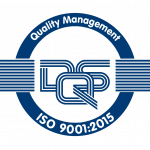Search Other Materials
PBT Characteristics
Polybutylene Terephthalate (PBT) is a high-performance thermoplastic that is an optimal choice for food processing applications, as it is FDA- and USDA- approved for use with food. It offers an excellent combination of wear and moisture resistance with strength and toughness, making it ideal for a wide variety of applications.
PBT is solvent-resistant at room temperature and can withstand a continuous operating temperature of 230° F. It offers excellent dimensional stability with high creep resistance and low moisture absorption. PBT is easily machined and fabricated. Characteristics include:
- Heat- and solvent-resistant
FDA compliant
- High impact strength
- Meets ASTM D6261
- Can be intricately machined
Applications for PBT Thermoplastic
- Bushes, bearings and pistons
- Valves and manifolds
- Automotive parts
- Electronic equipment
- Food processing machinery parts
Contact a Dielectric Manufacturing knowledge expert to discuss the use of PBT for fabrication of your plastic parts. Call 800-367-9122 or email sales@dielectricmfg.com.
We also are a distributor of PBT material. Contact us to discuss how we can fulfill your material needs.
PBT Material Properties
Dielectric Manufacturing, Richfield, Wisconsin USA dielectricmfg.com PBT Material Properties Provided By Dielectric Manufacturing, Richfield, Wisconsin
Property Metric units English units
General
Density 1.3e3 - 1.38e3 kg/m^3 0.047 - 0.0499 lb/ft^3
Mechanical
Yield Strength 5.65e7 - 6e7 Pa 8.19 - 8.7 ksi
Tensile Strength 5.65e7 - 6e7 Pa 8.19 - 8.7 ksi
Elongation 0.5 - 3 % strain 8.6 - 14.5 % strain
Hardness (Vickers) 1.67e8 - 1.77e8 Pa 17-18 HV
Impact Strength (un-notched) 1.34e5 - 2e5 J/m^2 63.8 - 95.2 ft.lbf/in^2
Fracture Toughness 1.59e6 - 2.75e6 Pa/m^0.5 1.45 - 2.51 ksi/in^0.5
Young's Modulus 1.93e9 - 3e9 Pa 0.28 - 0.435 10^6 psi
Thermal
Max Service Temperature 112 - 127 °C 234 - 261 °F
Melting Temperature 220 - 267 °C 428 - 513 °F
Insulator or Conductor Insulator Insulator
Specific Heat Capability 1.42e3 - 1.48e3 J/kg °C 0.339 - 0.353 BTU/lb. °F
Thermal Expansion Coefficient 1.08e-4 - 1.71e-7 strain/°C 60-95 µstrain/°F
Eco
CO2 Footprint 2.73 - 3.02 kg/kg 2.73 - 3.02 lb/lb
Recyclable Yes Yes





